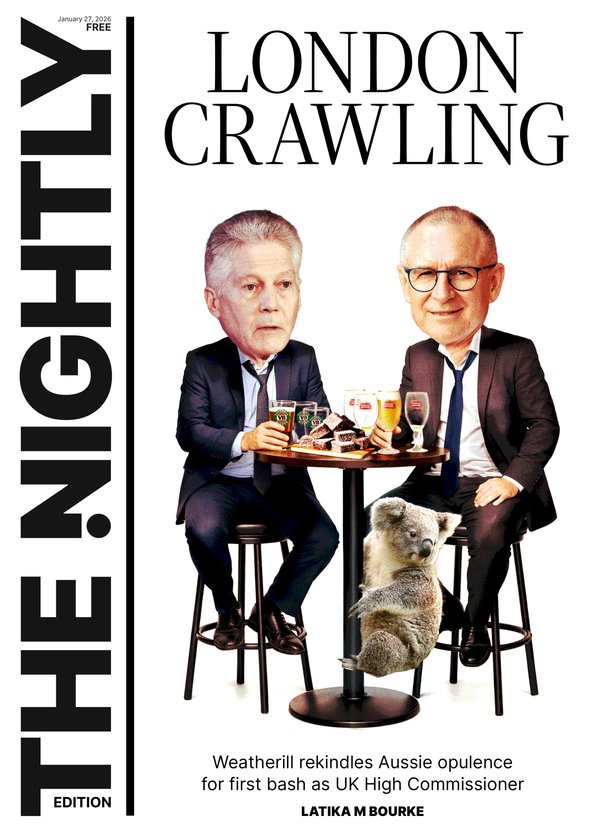EDITORIAL: The carbon offset market is all a lot of hot air

Climate guilt is a feeling most of us are well acquainted with.
Arriving at the supermarket to realise you forgot to grab your reusable grocery bag stash on the way out of the house always sets it off. Now you’re going to have to buy a clutch of new ones, thereby defeating the purpose of the whole exercise.
Your keep cup hasn’t been washed since the last latte. No cafe is going to accept it now, so you’re going to have to use a disposable one. You might as well have jumped into the ocean, put the nearest dolphin in a headlock and funnelled microplastics into its blowhole yourself. Strangle a turtle or two while you’re down there.
Sign up to The Nightly's newsletters.
Get the first look at the digital newspaper, curated daily stories and breaking headlines delivered to your inbox.
By continuing you agree to our Terms and Privacy Policy.One of the worst aggravators of climate guilt is flying.
Every time we step on board, we know the damage we’re doing to the environment. Tonnes and tonnes of carbon are sent into the fragile atmosphere so we can sun ourselves by a swimming pool for a few baht, visit our rellies interstate, or attend that industry conference.
Handily, there are carbon offsets to assuage our guilt when it comes to our aviation addiction.
For a few bucks, someone can go plant a tree on our behalf and we can enjoy the wonders of air travel guilt free.
It’s a moral get-out-of-jail-free card favoured in particular by heavy-emitting celebrities, criss-crossing the rapidly dying world in their private jets.
Pop megastar Taylor Swift was reportedly the biggest celebrity polluter of 2022, and her carbon footprint has only grown since then, courtesy of a hysteria-inducing world tour and a high-profile relationship with a football star, both of which saw her clock up an astonishing number of air miles in 2023.
In response to criticism of her extraordinary emissions output, Swift’s team likes to point out that she atones for her climate sins by purchasing more than double the amount of carbon credits needed to offset her travel.
But it turns out that the carbon credit market is built on a lot of hot air. Much of the industry is built on shonky maths and questionable ethics. Various investigations have found the positive impacts of carbon offset schemes have been vastly overstated.
To the uber-wealthy, stepping on board a private jet is about as noteworthy as catching the bus is to the rest of us mortals. In the process, they’re contributing many thousands of times more they’re spewing tonnes of carbon into the atmosphere — many times greater than the average person.
And yet frequently, they’re the ones lecturing us about the need to do more to stop climate change.
That’s not to say we should all give up on trying to do our part. The threat of climate change is real and immediate.
We shouldn’t make the perfect the enemy of the good when searching for ways to walk softly on the earth.
We need effective, practical ways to reduce carbon emissions and keep warming to a minimum.
But please, spare us the hypocritical moralising.
